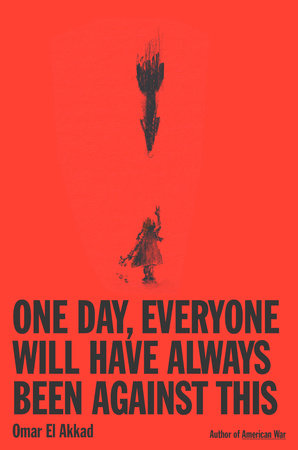More on this book
Community
Kindle Notes & Highlights
Read between
August 30 - September 10, 2025
(In the hierarchy of migration, “expat” is largely reserved for white Westerners who leave their homes for another country, usually because the money’s better there. When other people do this, they might be deemed “aliens” or “illegals” or at best “economic migrants.” As with most criteria of segregation, everyone knows, instinctively, how they will be labeled. It’s a matter of self-preservation, to know.)
Rules, conventions, morals, reality itself: all exist so long as their existence is convenient to the preservation of power. Otherwise, they, like all else, are expendable.
One of the hallmarks of Western liberalism is an assumption, in hindsight, of virtuous resistance as the only polite expectation of people on the receiving end of colonialism. While the terrible thing is happening—while the land is still being stolen and the natives still being killed—any form of opposition is terroristic and must be crushed for the sake of civilization. But decades, centuries later, when enough of the land has been stolen and enough of the natives killed, it is safe enough to venerate resistance in hindsight.
Once far enough removed, everyone will be properly aghast that any of this was allowed to happen. But for now, it’s just so much safer to look away, to keep one’s head down, periodically checking on the balance of polite society to see if it is not too troublesome yet to state what to the conscience was never unclear.
To watch the leader of the most powerful nation on earth endorse and finance a genocide prompts not a passing kind of disgust or anger, but a severance. The empire may claim fear of violence because the fear of violence justifies any measure of violence in return, but this severance is of another kind: a walking away, a noninvolvement with the machinery that would produce, or allow to produce, such horror.
It is a reminder that, in times like these, one remarkable difference between the modern Western conservative and their liberal counterpart is that the former will gleefully sign their name on the side of the bomb while the latter will just sheepishly initial it.
It can’t be both rhetorical urgency and policymaking impotence.
What the mainstream Democrat seems incapable of accepting is that, for an even remotely functioning conscience, there exists a point beyond which relative harm can no longer offset absolute evil.
It is the purpose of Westerners to contend with stakes, it is the purpose of everyone else to establish them.
I think about what Neil Sheehan once wrote in A Bright Shining Lie, about the difference between British and American approaches to empire—that the former felt compelled to civilize those they considered savage, a personal calling of sorts, a point of pride. The latter, on the other hand, had no use for any such notion.
It’s one thing to adhere to this business of not saying when one maintains some sense of belonging within the canon, within things previously said. When one can name their story The Sun Also Rises, knowing that the Book of Ecclesiastes is not an obscure text. It’s another thing entirely to pull from without, from some other lineage, and expect the unsaid to resonate, to be similarly understood.
The machine swallows life and spits out convenience. If liberalism has finally decided it is safe enough to consider the Black people whose labor built the machine as human, and the Indigenous people whose obliteration made room for the machine as human, and maybe the distant foreigners who sew our clothes and solder our motherboards might be human, and the inconvenient occupied whose land and water might hold resources we implicitly know but cannot explicitly say would be so much better used in service of the civilized world might be human, and if even the natural world and its inhabitants
...more
But none of this changes the reality that revenge has always been a universal resource. When the state enacts it, it will be deemed proportional and measured. When the individual does, it will mark a brand-new starting point of history and everyone who looks or sounds or in any way resembles the author of that violence will be commanded in perpetuity to condemn it, knowing full well no amount of condemnation will ever be enough.
One day it will be considered unacceptable, in the polite liberal circles of the West, not to acknowledge all the innocent people killed in that long-ago unpleasantness. The truth and reconciliation committees are coming. The land acknowledgments are coming. The very sorry descendants are coming. After all, grief in arrears is grief just the same. Entire departments of postcolonial studies will churn out papers interrogating the obliviousness that led us all to that very dark place, as though no one had seen from the beginning exactly what that place was, as though no one had screamed warnings
...more
It is not so hard to believe, even during the worst of things, that courage is the more potent contagion. That there are more invested in solidarity than annihilation. That just as it has always been possible to look away, it is always possible to stop looking away. None of this evil was ever necessary. Some carriages are gilded and others lacquered in blood, but the same engine pulls us all. We dismantle it now, build another thing entirely, or we hurtle toward the cliff, safe in the certainty that, when the time comes, we’ll learn to lay tracks on air.


